How the Internet of Things Will Change Server Room Administration
by Stephanie Faris on Monday, August 10 6:00
If you re technology proficient, you likely already know the impact the Internet of Things (IoT) is already having on homes across the country. Products like smart thermostats and doorbells have the ability to hook up to a family s in-home Wi-Fi, where they can then communicate directly with cloud-hosted servers. That then allows a homeowner to interact with those devices using a smartphone, tablet, or computer, adjusting the temperature or communicating with visitors when they stop by.
But how will that same technology impact your office? If your business has an on-site server room, your server administrators could eventually use IoT-based technology to manage their own server rooms. As businesses increasingly migrate technology to the cloud, IoT will be used by cloud providers to ensure customers information remains safely stored in a temperature-controlled environment. But how will this affect your business?
Alerts and Notifications
Server equipment is extremely sensitive to elements like temperature and humidity. Businesses with on-premise servers know how difficult it can be to maintain a safe environment for servers. If an air conditioning unit malfunctions, the temperature can quickly skyrocket, putting sensitive hard drives at risk of permanent damage. If humidity levels are off, static buildup can cause damage, as well, potentially resulting in downtime as drives are replaced.
With connected thermostats, administrators could be set up to receive alerts as soon as conditions in a server room become unfavorable. This would allow server admins to respond immediately, whether the alert comes through in the middle of the day or the middle of the night. For cloud-connected businesses, cloud providers could also allow access to these alerts to provide the peace of mind they need of knowing their data is being well managed.
IoT-Based Troubleshooting
While IoT stands to simplify facilities management, it will also bring more devices that need to be managed by tech professionals. Everything from lightbulbs to desk fans can now be connected to the cloud, which means technology will play a big role in the office of the future. Each device will need to be installed and connected, then managed by IT staff members. As businesses consider decreasing their IT teams, it s important to consider whether remaining staff can handle troubleshooting malfunctioning smart appliances throughout the office.
Security will also be an issue in an IoT-dominated office, since so many connected devices could open up networks to malware and security breaches. Server administrators will be challenged to anticipate security holes and manage a large number of devices as technology reaches far beyond computers, printers, and smartphones. Separate rules will need to be applied to allow office-based appliances to reside in the same environment as computers and mobile devices. During the adjustment period, it will be important that server administrators learn to adequately protect their servers in this new environment before an attack happens.
IoT is changing technology on many levels. For server administrators, this technology stands to change the way connected devices are managed. By learning as much as possible about IoT, administrators can prepare to take on these new challenges and avoid incidents in the early days.
